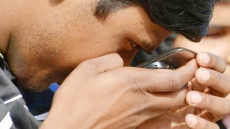In its bid to save children from online sexual abuse, France's national police has urged parents to stop posting photos of their children on Facebook and other social media platforms.
According to the technology website The Verge, such images can put privacy and security of the kids in danger and, if shared widely, such photos can reach sexual predators.
France's data protection authority has also urged parents to implement stronger privacy controls to limit the audience for their photos.
Jay Parikh, Facebook's vice president of engineering, recently wrote in a blog post that Facebook is planning a new feature that will automatically alert parents before they share photos of their kids with larger audiences.
"If I were to upload a photo of my kids playing at the park and I accidentally had it shared with the public, this system could say: Hey wait a minute, this is a photo of your kids, normally you post this to just your family members, are you sure you want to do this?," Parikh told a gathering at a media event in Bloomsbury in London recently.

More than two billion photographs are uploaded to Facebook every day and the social media giant will automatically warn you before you share images that features children or other family members, he added.
"Protect your children! You can all be proud moms and dads to your magnificent children, but be careful. We remind you that posting photos of your kids to Facebook is not without danger!," France's national gendarmerie wrote in a Facebook post.
A gendarmerie is, in principle, a military force charged with police duties among the civilian populations. Members of such a force are called "gendarmes".
In another post, a regional branch of the gendarmerie even cautioned parents to "STOP" the practice altogether.





